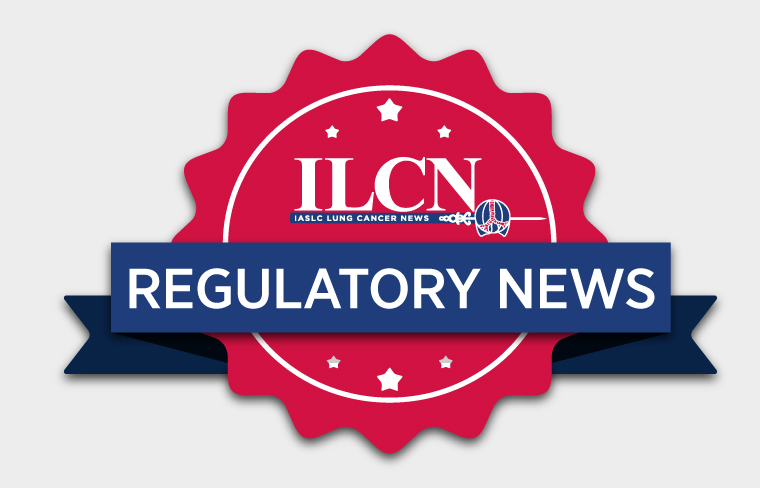
The US Food and Drug Administration (FDA) recently approved the VENTANA MET (SP44) RxDx Assay to identify patients with non-small cell lung cancer (NSCLC) who exhibit high c-MET overexpression. Developed by Roche, the assay is the first FDA-approved companion diagnostic for selecting patients who may be eligible for treatment with telisotuzumab vedotin-tllv.1
The decision is based on results from the phase II LUMINOSITY trial, which demonstrated a 35% overall response rate (ORR) and a median duration of response (DOR) of 7.2 months in patients with advanced or metastatic NSCLC harboring c-MET overexpression.2
This approval follows the FDA’s recent accelerated approval of telisotuzumab vedotin-tllv for the treatment of locally advanced or metastatic NSCLC with high c-MET overexpression in patients who have previously received systemic therapy.2
About the VENTANA MET (SP44) RxDx Assay
The VENTANA MET (SP44) RxDx Assay, an immunohistochemistry (IHC) assay, is designed to detect MET protein overexpression by analyzing the percentage and intensity of stained tumor cells.1 It provides key information about MET protein expression to help clinicians determine if a patient is likely to benefit from targeted therapy.1
The MET protein is a predictive biomarker, which is often overexpressed in patients with non-squamous NSCLC. Identifying its overexpression and enabling interventions early in a patient’s treatment journey may improve outcomes by delivering personalized and timely therapeutic options. This development represents not only renewed hope for patients but also an important step for future advancements in targeted therapies.
About the LUMINOSITY Trial and Key Findings
The open-label LUMINOSITY trial evaluated the safety and efficacy of telisotuzumab vedotin-tllv in patients with previously treated c-MET-positive NSCLC. During the trial, the test was used as an enrollment assay to identify participants with c-MET overexpression.2
Among the 84 enrolled participants evaluated for c-MET expression, 38 underwent retrospective testing using the VENTANA MET RxDx Assay.2 Although one sample was unevaluable, 87% of the 37 evaluable samples showed high c-MET expression, which was defined as strong (3+) membrane and/or cytoplasmic staining on at least 50% of tumor cells.1
Eligibility criteria for participants included:
- Locally advanced or metastatic NSCLC
- c-MET-positive NSCLC confirmed by IHC testing
- Documented non-squamous EGFR wild-type NSCLC
- No more than two lines of prior systemic therapy, including no more than one line of systemic cytotoxic chemotherapy3
The primary endpoints were ORR and safety. Secondary endpoints included DOR, disease control rate (DCR), progression-free survival (PFS), and overall survival (OS).3
The most common adverse reactions were decreased appetite, peripheral neuropathy, and peripheral edema.2 The most frequent grade 3 or 4 laboratory abnormalities included increased glucose, decreased sodium, and decreased hemoglobin.2
Future Implications for Targeted Therapies in NSCLC
The FDA approval of the VENTANA MET RxDx marks a significant advancement in the era of personalized treatments for NSCLC. Companion diagnostics play a key role in identifying molecular markers that can help clinicians tailor treatment decisions for patients.
Despite advances in treatment, lung cancer remains the leading cause of cancer-related deaths across the world. Additionally, many patients are often diagnosed at advanced stages, limiting their treatment options.
Based on findings from the LUMINOSITY trial, patients with high c-MET expression who were treated with telisotuzumab vedotin-tllv demonstrated clinically meaningful responses. Utilizing the VENTANA MET RxDx Assay to identify patients who may be eligible for treatment with telisotuzumab vedotin-tllv earlier on can potentially improve treatment outcomes and extend survival for patients with this aggressive disease.
References
- 1. https://www.roche.com/media/releases/med-cor-2025-05-14
- 2. https://www.oncnursingnews.com/view/fda-oks-companion-test-for-telisotuzumab-vedotin-in-nsclc
- 3. Camidge DR, Bar J, Horinouchi H, et al. Telisotuzumab Vedotin Monotherapy in Patients With Previously Treated c-Met Protein-Overexpressing Advanced Nonsquamous EGFR-Wildtype Non-Small Cell Lung Cancer in the Phase II LUMINOSITY Trial. J Clin Oncol. 2024;42(25):3000-3011. doi:10.1200/JCO.24.00720










